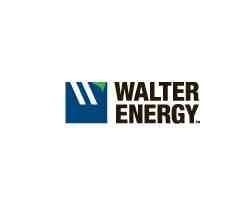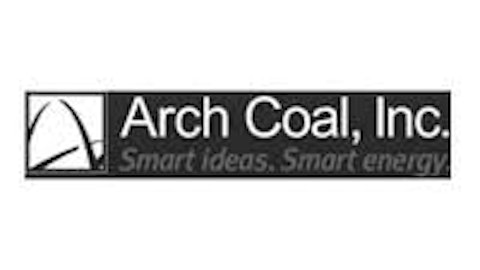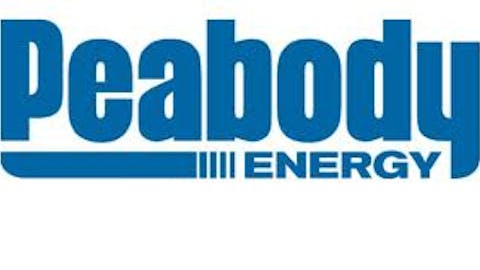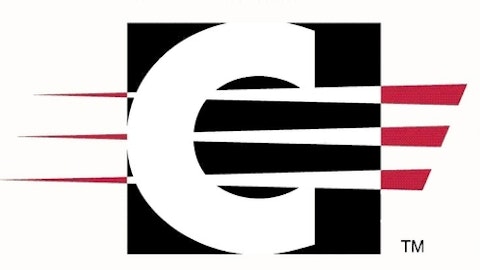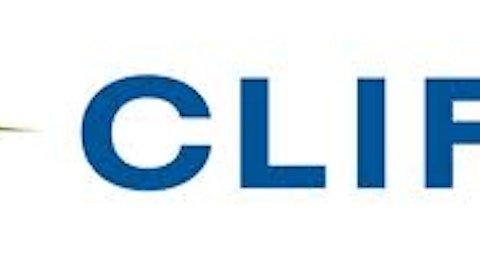Benchmark coking coal prices are down 56% from a quarterly price of $330 per metric tonne in mid 2011 to $145 per tonne for the July-Sept, 2013 period. This depressed level is widely believed to be below the marginal cost of production of roughly $175-$185 per tonne. However, spot prices have been below that level for quite some time, suggesting that the true marginal cost might be closer to $150 – $160 per tonne.
One thing that’s certain, U.S. coking coal production is in dire straights at a global benchmark price of $145 per tonne. In the U.S., Walter Energy, Inc. (NYSE:WLT) is most exposed to coking coal prices, followed by Alpha Natural Resources, Inc. (NYSE:ANR), Arch Coal Inc (NYSE:ACI), CONSOL Energy Inc. (NYSE:CNX) and Peabody Energy Corporation (NYSE:BTU).
U.S. Coking Coal Producers Falling Back to Swing Producer Status?
In 2010-11 there was great excitement as stronger global coking coal prices allowed U.S. producers to make a mark in the seaborne market. Prior to that, the U.S. industry was a swing producer, i.e. only a meaningful factor when coking coal prices spiked like they did in 2008. By mid 2011, most coking coal players believed the U.S. would continue to be a top producer and exporter and no longer a swing producer.
All of that changed when coking coal prices fell below $200 per tonne in 2012. The U.S. needs $200 per tonne pricing to be relevant. Some analysts and stakeholders believe that coking coal prices will bounce back significantly in the next 6-9 months. That appears unlikely. Unless there is an exogenous event, such as severe flooding in Queensland, Australia, coking coal prices are probably stuck below $200 per tonne.
Australia Reasserts its Power in Coking Coal
Queensland, Australia accounts for more than half of the global seaborne coking coal market. In recent years, the U.S. had been taking market share. Walter Energy, Inc. (NYSE:WLT) has capacity to export up to 12 million tonnes and Alpha Natural Resources, Inc. (NYSE:ANR) twice that amount. However, Australia, led by BHP Billiton Limited (ADR) (NYSE:BHP)‘s BMA Alliance, is not making it easy for U.S. producers. BHP Billiton Limited (ADR) (NYSE:BHP)’s coking coal costs are lower and its average quality higher.
Despite global prices down 56%, BHP and others in Australia such as Anglo American plc (LON:AAL) continue to produce full speed ahead. Alpha Natural Resources, Inc. (NYSE:ANR), with about two thirds of its coking coal being premium hard coking coal like the coals from Australia, has production costs well above Australia’s. Alpha Natural Resources, Inc. (NYSE:ANR) and U.S. peers would be largely shut out of the searborned market if not for railroads cutting freight rates by $20-$25 per tonne. Alpha Natural Resources, Inc. (NYSE:ANR) needs $200 per tonne to thrive, but BHP and Anglo American plc (LON:AAL) can make hay at lower prices.
Arch and Walter, Too Much Debt, U.S. Zombies?
Arch Coal Inc (NYSE:ACI) made an ill-timed acquisition of non-producing east coast coking coal assets in 2011. The company continues to advance the acquired assets towards first production, but profitability at $145 per tonne will be minimal. Arch bet the farm on this acquisition. It was a bad bet.
Walter Energy, Inc. (NYSE:WLT) is the only sizable pure-play coking coal producer in the U.S. It too made a mistake in 2011, Walter Energy, Inc. (NYSE:WLT) acquired high cost Canadian coking coal assets. However, Walter Energy, Inc. (NYSE:WLT) has some of the best quality coking coal in the world in its Alabama mines. Walter Energy, Inc. (NYSE:WLT) recently tried unsuccessfully to refinance its bank debt, which sent the stock a lot lower. Like Alpha Natural Resources, Inc. (NYSE:ANR), Walter Energy, Inc. (NYSE:WLT) needs higher coking coal prices to survive.
Peabody and Consol, Stronger, but Still Need a Big Improvement in Pricing
Peabody Energy Corporation (NYSE:BTU) used to be without question the bellwether U.S. coal company. Yet, by expanding into Australia to play with the big boys, Peabody bit off more than it can chew. The company is the largest producer of thermal coal in the U.S., but it’s being weighed down by debt and by loss-making operations in Australia at the moment.
Finally, CONSOL Energy Inc. (NYSE:CNX) has one of the best premium hard coking coal mines in North America. It can pump out 5 million tonnes per year. The mine has a relatively low cost structure, but not as low as mines in Australia. Consol can produce and make a small amount of money at $150 per tonne pricing, but it doesn’t move the needle. Consol also has a large natural gas business.
Conclusion
U.S. coking coal producers are in a world of pain. Despite aggressive efforts to cut costs, current benchmark pricing is just too low. Investors who expect coking coal prices to rebound above $200 per tonne relatively soon could be disappointed. Most of the U.S. coking coal players mentioned will likely make it through the next 12-24 months, but they are not good investments at this time. Stay away from coal.
The article Coking Coal Players Feel the Pain, When the Gain? originally appeared on Fool.com. Peter is a member of The Motley Fool Blog Network — entries represent the personal opinion of the blogger and are not formally edited.
Peter Epstein owns shares of Alpha Natural Resources, CONSOL Energy, and Walter Industries. The Motley Fool has no position in any of the stocks mentioned.
Copyright © 1995 – 2013 The Motley Fool, LLC. All rights reserved. The Motley Fool has a disclosure policy.
